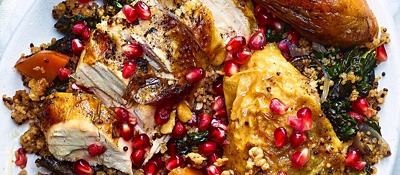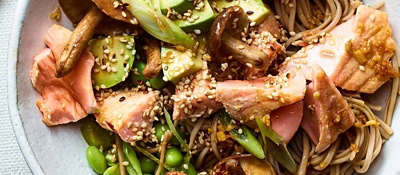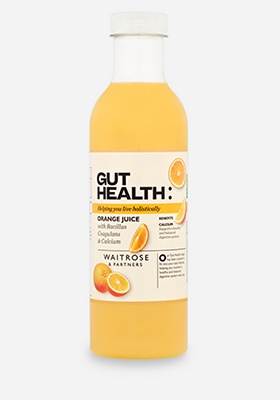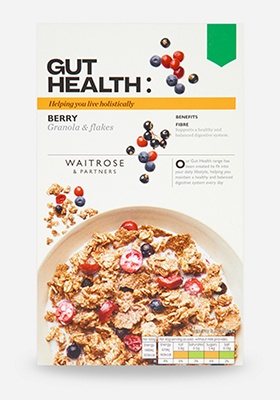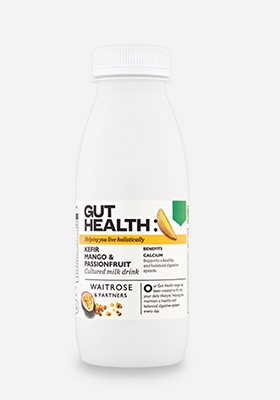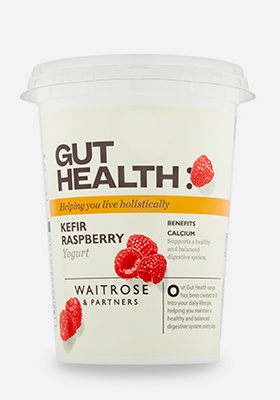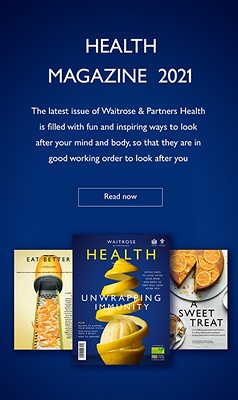How to optimise your immune system



Greg Whyte OBE
Keep your immune system fighting fit with this five-point plan from Professor Greg Whyte, one of the world’s leading authorities in sport and exercise science
Boosting your immune system sounds appealing – but fine-tuning and optimising, rather than boosting, is the name of the game. It’s within your power to look after your immune system as best you can. Eating a little better, moving a little more and taking care in other aspects of your lifestyle will, over time, help to keep your immune system working like a well-oiled machine.


1. FOOD THAT FORTIFIES
Improving your diet can have a profound and rapid impact on your health. We know certain micronutrients (vitamins and minerals) play particularly important roles in the workings of the immune system. These include vitamins A, B6, B12, C, D, copper, folate, selenium and zinc. A healthy diet, high in fruit and vegetables, should provide you with all the micronutrients you need.
Eat fruit and veg
Think in handfuls when it comes to measuring a portion of fruit or vegetables. A handful changes according to body size, and that’s a good thing. The bigger you are, the more fruit and vegetables you need. Use fresh, frozen, canned, dried, or juiced fruit and vegetables – all these count. Crucially, with frozen, they’re picked and frozen on the same day, which helps maintain their goodness. Sprinkling a small handful of nuts and seeds over salads, vegetables or grains also boosts your micronutrient intake.
Do it yourself
As far as possible, prepare your own food. In doing this, you know what’s in it. Immediately, you can eliminate one of the main problems with diet: highly processed foods, especially sugar, which has a profoundly negative impact on immune health.
Plan ahead
It helps to make a meal plan. At the top of the list of people’s reasons for a bad diet is that they don’t have enough time. Planning your menu in advance not only saves you money and keeps you from throwing food in the bin at the end of the week, it’s quicker – when you decide what you’re going to eat day by day, you spend a lot of time having to think about it or going to the shops.

Cook slow
You can also plan around the week’s activities. I have three kids, so mealtimes are a juggling act of what and when to cook. When everyone’s very busy, we’ll use the slow cooker. That way, we can feed people at different times. Try a slow-cooked chilli – a portion of beans (red kidney beans contain iron) or pulses count towards your five-a-day.

YOUR MICRONUTRIENT SHOPPING LIST
Vitamin A
Vitamin B6
Vitamin B12
Yeast extracts such as Marmite
Vitamin C

Vitamin D
Copper
Folate
Iron
Selenium
Zinc

2. KEEP MOVING
The World Health Organization (WHO) recommends at least 150 minutes of moderate-intensity exercise a week, plus two strength sessions. As well as walking, running, cycling and swimming, the activities of daily living count. These include walking to the shops, cleaning the car and gardening.
Walking intensity
A great way to think about exercise intensity is in walking terms. If you’re ambling along with small children, that’s low intensity. Your heart rate and your respiratory rate aren’t elevated. If you go for a brisk walk with a friend at a faster pace, your heart rate and breathing rate are elevated. That’s moderate intensity. Aim to walk so you can talk, but you shouldn’t be able to sing.
Everyday strength
When we talk about strength sessions, we’re talking about something that makes movement a little more difficult. There are lots of ways to do that – you don’t need to lift weights or even be a member of a gym. Picking up a child is a strength session. If you can, carry shopping bags rather than using a trolley. Get into the garden – digging requires a considerable amount of strength.
The great outdoors
When you exercise, do it outside if you can. Covid-19 has shone a spotlight on the benefits of being outdoors. From the beginning of the pandemic, we were told that exercising outdoors is safer. This is because the spread of airborne viruses is much lower when you’re outside. It provides all the positives of physical activity, but also elevates them. Plus, even on a cloudy day, you get a vitamin D fix.
A little more, every day
All in all, be more active, more often. Do more today than you did yesterday. If you got up from your chair only once today, do it twice tomorrow. If you maintain that mantra, you’ll get to a point where we know there are significant health benefits.
Warm roast chicken and quinoa salad
Transform your Sunday roast into something more nutritious. This simple recipe is high in essential micronutrients such as vitamins A, B6 and C, as well as folate and copper.
Salmon and buckwheat noodle bowls
This speedy midweek meal is packed with micronutrients including vitamins B6, B12 and D, as well as selenium, folate and copper.

3. STRIKE A BALANCE
We all like the idea of a quick fix. So many of us combat poor diet and nutrition with processed sugar (a major cause of obesity) because we need an energy hit. After a poor night’s sleep, we might use caffeine to improve our alertness. And many of us are prone to drinking more alcohol when we’re stressed.
A holistic approach
But now we know that obesity increases the risk of severe illness from Covid-19 and alcohol can reduce the body’s ability to fight infections, it’s a good time to find a better solution – moderating your lifestyle with diet, exercise and stress management.
Finding ways to manage stress
Act on your stress and anxiety. See it as a sign to stop, rest and find a better way. We often hope that it will somehow evaporate; then, when it inevitably doesn’t, we reach for those quick fixes, which can negatively affect our immune and overall health. There are lots of healthy, effective ways to try to minimise stress and anxiety. It’s about finding the ones that work for you, whether that’s making lists and creating plans, doing physical activity, meditating or talking with friends and family.

Roasted carrot, beetroot and lentil salad
This vegan salad can be served warm for supper or for lunch the next day. A great source of vitamins A, B6 and C, and high in folate, copper, iron and selenium.

4. SLEEP ON IT
You do it every day and yet sleep is probably the most poorly examined area of heath. As long as we get some sleep, we think we’re doing it right, or we don’t care whether we are or not. But with the lives we lead now, people are incredibly stressed. Sleep and recovery are fundamental to optimising our health, particularly our immune health – not just the duration but the quality of it.
Set a routine
Get into a sleeping pattern. Your circadian rhythm (your body’s internal clock) is incredibly important because it fundamentally affects your sleep-wake cycle. It’s what is disrupted when you take long-haul flights, causing jet lag. Try to be consistent in your sleep pattern. I’m not saying don’t have fun evenings when you stay up later, but do try to go to sleep at the same time each night as much as possible.
Get into a rhythm
Prepare for sleep. Have a rhythm for bedtime (caffeine, eating a large meal and drinking too much alcohol all promote an inability to sleep) and you’ll find that starts to dictate the rhythm of other aspects of life – the time at which you finish reading emails, stop drinking tea or coffee, have your supper.
Time to chill
Make sure your preparation for sleep includes time to decompress. We don’t watch a great deal of television in our house, but in that 9-10pm period, my wife and I sit down and watch something, maybe a boxset. It’s a nice hour when we unwind. We’re not answering emails or texts, or using social media, and the kids are in bed, so the house is quiet. We can switch off for an hour.
No screens before sleep
We’re also both readers, so when we do go to bed, we tend to read before sleeping. Electronic devices emit a specific wavelength of light, which can affect your sleep cycle. It’s a personal thing, but I would always recommend paper books rather than screens for this reason. And make sure your bedroom is dark, quiet and cool – these conditions encourage good-quality sleep.

5. GO WITH YOUR GUT
Gut health is a fascinating area. We often talk about bacteria in negative terms, but your microbiome, the community of bacteria (and viruses and fungi) that live on your skin and in your body, is incredibly important and beneficial for your overall health, specifically your immune system, central nervous system, glucose metabolism, heart and body weight, as well as many other aspects of health.
Good bacteria
It’s not solely the number of bacteria in the gut that’s important, but the diversity of bacteria. So eating a wide range of foods could help. Include fermented foods, such as natural yogurt, sauerkraut and kefir, and wholegrains, such as whole oats and brown rice. These foods introduce bacteria to the gut and create an environment in which they can thrive.
Naturally sweet
Reducing processed sugar is also an important step in improving your gut microbiome. Try replacing your go-to sugary snack with one that’s naturally sweet and will support your gut health. For a quick and easy option, whizz natural yogurt or kefir into your smoothie, or enjoy a few spoonfuls with fruit.
Change it up
Getting experimental in the kitchen will help you increase the variety in your diet. My family is no different from any other in that it is sometimes easier to use the same ten menus on repeat. You know children will eat them, so you stick to them. Experiment a bit more: eating a more diverse range of foods will have a positive effect on your gut microbiome.
Gut feeling
Our Gut Health range has been created to fit into your daily lifestyle, helping you maintain a healthy and balanced digestive system.
This feature was taken from Waitrose & Partners Health, January 2021



